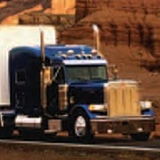Information
-
Audit Title
-
Site Reference, Name, or other Identifier
-
Conducted on
-
Prepared by
-
Physical Location
-
Personnel
Administrative Controls
-
Is there someone specifically responsible for Financial Responsibility?
-
Provide the Name, TItle & Phone Number (with extension) of the responsible person(s) below:
Person
-
Enter information here...
-
Is there someone specifically responsible for Driver Qualification Files (DQFs)?
-
Provide the Name, TItle & Phone Number (with extension) of the responsible person(s) below:
Person
-
Enter information here...
-
Is there someone specifically responsible for Drug & Alcohol Testing policy and procedures?
-
Provide the Name, TItle & Phone Number (with extension) of the responsible person(s) below:
Person
-
Enter information here...
-
Is there someone specifically responsible for DOT Accident Reporting and record retention?
-
Provide the Name, TItle & Phone Number (with extension) of the responsible person(s) below:
Person
-
Enter information here...
-
Is there someone specifically responsible for Driver Physical Qualifications and Hours-Of-Service?
-
Provide the Name, TItle & Phone Number (with extension) of the responsible person(s) below:
Person
-
Enter information here...
-
Is there someone specifically responsible for Vehicle Inspection, Maintenance, and Record Retention?
-
Provide the Name, TItle & Phone Number (with extension) of the responsible person(s) below:
Person
-
Enter information here...
-
Is there someone specifically responsible for Hazardous Materials training and Record Retention?
-
Provide the Name, TItle & Phone Number (with extension) of the responsible person(s) below:
Person
-
Enter information here...
Factor 1 - General
General (Parts 387 & 390)
-
Is this Factor being evaluated?
-
§387.7(d) Motor carrier maintains, at principal place of business, required proof of financial responsibility (critical).
-
§387.31(a) Motor carrier prohibits operating a passenger carrying vehicle without having in effect the required minimum levels of financial responsibility (acute).
-
§387.31(d) Motor carrier maintains at principal place of business required proof of financial responsibility for passenger carrying vehicles (critical).
-
§390.35 Motor carrier prohibits making, or causing to make fraudulent or intentionally false statements or records and/or reproducing fraudulent records (acute).
-
§390.15(b)(2) Motor carrier maintains copies of all accident reports required by State or other governmental entities or insurers (critical).
Factor 2 - Driver
Driver (Parts 382, 383, 391)
-
Is this Factor being evaluated?
-
§382.115(a) Motor carrier has implemented an alcohol and/or controlled substances testing program (domestic motor carrier) (acute).
-
§382.115(b) Motor carrier has implemented an alcohol and/or controlled substances testing program (foreign motor carrier) (acute).
-
§382.201 Motor carrier prohibits using a driver known to have an alcohol concentration of 0.04 or greater (acute).
-
§382.211 Motor carrier prohibits using a driver who has refused to submit to an alcohol or controlled substances test required under part 382 (acute).
-
§382.213(b) Motor carrier prohibits using a driver known to have used a controlled substance (acute).
-
§382.215 Motor Carrier prohibits using a driver known to have tested positive for a controlled substance (acute).
-
§382.301(a) Motor carrier prohibits using a driver before the motor carrier has received a negative pre-employment controlled substance test result (critical).
-
§382.303(a) Motor carriers conducts post accident testing on driver for alcohol (critical).
-
§382.305 Motor carrier has implemented a random controlled substances and/or an alcohol testing program (acute).
-
§382.305(b)(1) Motors carrier conducts random alcohol testing at an annual rate of not less than the applicable annual rate of the average number of driver positions (critical).
-
§382.305(b)(2) Motor carrier conducts random controlled substances testing at an annual rate of not less than the applicable annual rate of the average number of driver positions (critical).
-
§ 382.309(a) Motor Carrier prohibits using a driver who has not undergone a return-to-duty alcohol test with a result indicating an alcohol concentration of less than 0.02 (acute).
-
§ 382.309(b) Motor carrier prohibits using a driver who has not undergone a return-to-duty controlled substances test with a result indicating a verified negative result for controlled substances (acute).
-
§382.503 Motor carrier prohibits allowing a driver to perform safety sensitive function, after engaging in conduct prohibited by subpart B, without being evaluated by substance abuse professional, as required by §382.605 (critical).
-
§382.505(a) Motor carrier prohibits using a driver within 24 hours after being found to have an alcohol concentration of 0.02 or greater but less than 0.04 (acute).
-
§ 382.605(c)(1) Motor carrier prohibits using a driver who has not undergone a return-to-duty alcohol test with a result indicating an alcohol concentration of less than .02 or with verified negative test result, after engaging in conduct prohibited by part 382 subpart B (acute).
-
§ 382.605(c)(2)(ii) Motor carrier subjects a driver who has been identified as needing assistance to at least six unannounced follow-up alcohol and/or controlled substance tests in the first 12 months following the driver's return to duty (critical).
-
§383.23(a) Motor carrier prohibits operating a commercial motor vehicle without a valid commercial driver's license (critical).
-
§383.37(a) Motor carrier prohibits knowingly allowing, requiring, permitting, or authorizing an employee who does not have a current CLP or CDL, who does not have a CLP or CDL with the proper class or endorsements, or who operates a CMV in violation of any restriction on the CLP or CDL to operate a CMV (acute).
-
§383.37(b) Motor carrier prohibits knowingly allowing, requiring, permitting, or authorizing an employee with a commercial driver's license which is suspended, revoked, or canceled by a state or who is disqualified to operate a commercial motor vehicle (acute).
-
§ 383.37(c) Motor carrier prohibits knowingly allowing, requiring, permitting, or authorizing an employee with more than one commercial driver's license to operate a commercial motor vehicle (acute).
-
§383.51(a) Motor carrier prohibits knowingly allowing, requiring, permitting, or authorizing a driver to drive who is disqualified to drive a commercial motor vehicle (acute).
-
§391.11(b)(4) Motor carrier prohibits using a physically unqualified driver (acute).
-
§391.15(a) Motor carrier prohibits using a disqualified driver (acute).
-
§391.45(a) Motor carrier prohibits using a driver not medically examined and certified (critical).
-
§391.45(b)(1) Motor carrier prohibits using a driver not medically examined and certified during the preceding 24 months (critical).
-
§391.51(a) Motor carrier maintains a driver qualification file on each driver employed (critical).
-
§391.51(b)(2) Motor carrier maintains inquiries into driver's driving record in driver's qualification file (critical).
-
§391.51(b)(7) Motor carrier maintains medical examiner's certificate in driver's qualification file (critical).
Factor 3 - Operational
Operational (Parts 392 & 395)
-
Is this Factor being evaluated?
-
§392.2 Motor carrier prohibits operating a motor vehicle not in accordance with the laws, ordinances, and regulations of the jurisdiction in which it is being operated (critical).
-
§392.4(b) Motor carrier prohibits requiring or permitting a driver to drive while under the influence of, or in possession of, a narcotic drug, amphetamine, or any other substance capable of rendering the driver incapable of safely operating a motor vehicle (acute).
-
§392.5(b)(1) Motor carrier prohibits requiring or permitting a driver to drive a motor vehicle while under the influence of, or in possession of, an intoxicating beverage (acute).
-
§392.5(b)(2) Motor carrier prohibits requiring or permitting a driver who shows evidence of having consumed an intoxicating beverage within 4 hours to operate a motor vehicle (acute).
-
§392.6 Motor carrier prohibits scheduling a run which would necessitate the vehicle being operated at speeds in excess of those prescribed (critical).
-
§392.9(a)(1) Motor carrier prohibits requiring or permitting a driver to drive without the vehicle's cargo being properly distributed and adequately secured (critical).
-
§395.1(h)(1)(i) Motor carrier prohibits requiring or permitting a property-carrying commercial motor vehicle driver to drive more than 15 hours (Driving in Alaska) (critical).
-
§395.1(h)(1)(ii) Motor carrier prohibits requiring or permitting a property-carrying commercial motor vehicle driver to drive after having been on duty 20 hours (Driving in Alaska) (critical).
-
§395.1(h)(1)(iii) Motor carrier prohibits requiring or permitting a property-carrying commercial motor vehicle driver to drive after having been on duty more than 70 hours in 7 consecutive days (Driving in Alaska) (critical).
-
§ 395.1(h)(1)(iv) Motor carrier prohibits requiring or permitting a property-carrying commercial motor vehicle driver to drive after having been on duty more than 80 hours in 8 consecutive days (Driving in Alaska) (critical).
-
§ 395.3(a)(1) Motor carrier prohibits requiring or permitting a property-carrying commercial motor vehicle driver to drive without taking an off-duty period of at least 10 consecutive hours prior to driving (critical).
-
§395.3(a)(2) Motor carrier prohibits requiring or permitting a property-carrying commercial motor vehicle driver to drive after the end of the 14th hour after coming on duty (critical).
-
§ 395.3(b)(1) Motor carrier prohibits requiring or permitting a property-carrying commercial motor vehicle driver to drive after having been on duty more than 60 hours in 7 consecutive days (critical).
-
§ 395.3(b)(2) Motor Carrier prohibits requiring or permitting a property-carrying commercial motor vehicle driver to drive after having been on duty more than 70 hours in 8 consecutive days (critical).
-
§395.8(a) Motor carrier requires driver to make a record of duty status (critical).
-
§395.8(e) Motor carrier prohibits false reports of records of duty status (critical).
-
§395.8(i) Motor carrier requires driver to forward within 13 days of completion, the original of the record of duty status (critical).
-
§395.8(k)(1) Motor carrier preserves driver's record of duty status for 6 months (critical).
-
§395.8(k)(1) Motor carrier preserves driver's records of duty status supporting documents for 6 months (critical).
Factor 4 - Vehicle
Vehicle (Parts 393 & 396)
-
Is this Factor being evaluated?
-
§396.3(b) Motor carrier maintains minimum records of inspection and vehicle maintenance (critical).
-
§396.9(c)(2) Motor carrier prohibits requiring or permitting the operation of a motor vehicle declared “out-of-service” before repairs were made (acute).
-
§396.11(a) Motor carrier requires driver to prepare driver vehicle inspection report (critical).
-
§396.11(c) Motor carrier corrects Out-of-Service defects listed by driver in a driver vehicle inspection report before the vehicle is operated again (acute).
-
§396.17(a) Motor carrier prohibits using a commercial motor vehicle not periodically inspected (critical).
-
§396.17(g) Motor carrier ensures prompt repair of parts and accessories not meeting minimum periodic inspection standards (acute).
Factor 5 - HazMat
Hazardous Materials (Parts 397, 171, 172, 177, 180)
-
Is this Factor being evaluated?
-
§397.5(a) Motor carrier ensures a motor vehicle containing Division 1.1, 1.2, or 1.3 (explosive) material is attended at all times by its driver or a qualified representative (acute).
-
§397.7(a)(1) Motor carrier prohibits parking a motor vehicle containing Division 1.1, 1.2, or 1.3 materials within 5 feet of traveled portion of highway or street (critical).
-
§397.7(b) Motor carrier prohibits parking a motor vehicle containing hazardous material(s) other than Division 1.1, 1.2, or 1.3 materials within 5 feet of traveled portion of highway or street (critical).
-
§397.13(a) Motor carrier prohibits permitting a person to smoke or carry a lighted cigarette, cigar or pipe within 25 feet of a motor vehicle containing Class 1 materials, Class 5 materials, or flammable materials classified as Division 2.1, Class 3, Divisions 4.1 and 4.2 (critical).
-
§397.19(a) Motor carrier furnishes driver of motor vehicle transporting Division 1.1, 1.2, or 1.3 (explosive) materials with a copy of the rules of part 397 and/or emergency response instructions (critical).
-
§397.67(d) Motor carrier prohibits requiring or permitting the operation of a motor vehicle containing explosives in Class 1, Divisions 1.1, 1.2, or 1.3 that is not accompanied by a written route plan (critical).
-
§397.101(d) Motor carrier prohibits requiring or permitting the operation of a motor vehicle containing highway route-controlled quantity, as defined in §173.403, of radioactive materials that is not accompanied by a written route plan (critical).
-
§171.15 Motor carrier gives immediate telephone notice of an incident involving hazardous materials (critical).
-
§171.16 Motor carrier ensures a written report of an incident involving hazardous materials (critical).
-
§177.800(c) Motor carrier instructs a category of employees in hazardous materials regulations (critical).
-
§177.817(a) Motor carrier prohibits transporting a shipment of hazardous materials not accompanied by a properly prepared shipping paper (critical).
-
§177.817(e) Motor carrier ensures proper accessibility of shipping papers (critical).
-
§177.823(a) Motor carrier prohibits moving a transport vehicle containing hazardous material that is not properly marked or placarded (critical).
-
§177.841(e) Motor carrier prohibits transporting a package bearing a poison label in the same transport vehicle with material marked or known to be foodstuff, feed, or any edible material intended for consumption by humans or animals unless an exception in §177.841(e)(i) or (ii) is met (acute).
-
§180.407(a) Motor carrier prohibits transporting a shipment of hazardous material in cargo tank that has not been inspected or retested in accordance with § 180.407 (critical).
-
§180.407(c) Motor carrier ensures periodical test and inspect a cargo tank (critical).
-
§180.415 Motor carrier ensures marking cargo tank(s) which passed an inspection or test required by § 180.407 (critical).
-
§180.417(a)(1) Motor carrier retains cargo tank manufacturer's data report certificate and related papers, as required (critical).
-
§180.417(a)(2) Motor carrier retains copies of cargo tank manufacturer's certificate and related papers (or alternative report) as required (critical).
Factor 6 - Accident Rate
Accident Rate
-
Is this Factor being evaluated?
-
Check if they are an Urban Carrier (i.e., they operate within a 100 mile radius of the reporting location).
-
Multiply the number of DOT Recordable Accidents by 1,000,000. Next, divide that number by the total miles driven by the motor carrier (VMT) in the 365 days PRIOR to the Compliance Review. If the Accident Rate is greater than 1.7 they will likely receive an "Unsatisfactory" Rating and will be effective 45 days after receipt of official notice from DOT. They may be prohibited from operating until all violations have been corrected.
-
Check if they are NOT an Urban Carrier.
-
Multiply the number of DOT Recordable Accidents by 1,000,000. Next, divide that number by the total miles driven by the motor carrier (VMT) in the 365 days PRIOR to the Compliance Review. If the Accident Rate is greater than 1.5 they will likely receive an "Unsatisfactory" Rating which will be effective 45 days after receipt of official notice from DOT. They may be prohibited from operating until all violations have been corrected.
NOTES
-
1. A Critical Violation relates to the lack of, or inefficient management controls that could contribute to a vehicle crash. 2. An Acute Violation is regarded as so severe that immediate correction is required. Determination of non-compliance with Acute regulations & a pattern of non-compliance (i.e., 2 or more violations) of Critical regulations are used to establish a safety rating. Points are assigned for non-compliance or a pattern of non-compliance. Non-compliance with an "Acute" regulation = 1 point A pattern of non-compliance with "Critical" regulations = 1 point. This will result if during the CR, violations are found in 10% of the documents reviewed. In addition, if a pattern of non-compliance involving Hours-of-Sevice "Critical" regulations is identified, 2 points will be assessed. Factor 4 (Vehicle) rating is based on Out-of-Service (OOS) involving 3 vehicle inspections in during the 12 months prior to the CR, or performed during the CR. The Vehicle Factor looks at non-compliance with Acute regulations or a pattern of non-compliance with Critical regulations. If the OOS rate is <34% (satisfactory). If violations found in 396, it goes to 'Conditional'. If >34% the rating is 'Conditional'. If violations in 396 also, it could go to 'Unsatisfactory'. Rating Table: Factor Ratings Overall Safety Rating Unsat Conditional 0 2 or less = Satisfactory 0 more than 2 = Conditional 1 2 or less = Conditional 1 more than 2 = Unsatisfactory 2 or more 0 or more = Unsatisfactory
-
Inspector Signature












